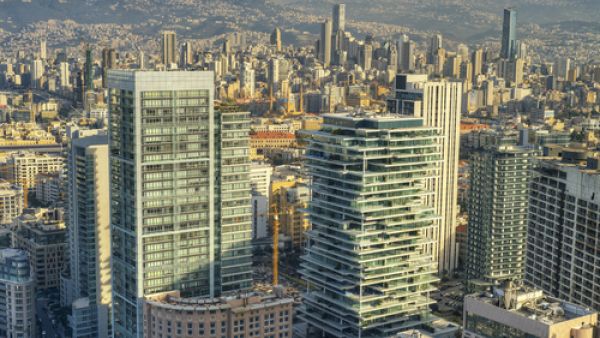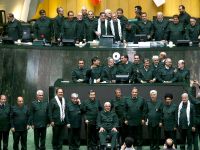The International Monetary Fund called on the Lebanese government to capitalize on its political breakthrough by focusing more on reducing the mounting public debt and stimulating the economy.
“The authorities need to articulate a plausible policy mix that halts the growth of public debt and places the economy on a more sustainable path. Front-loaded fiscal adjustment needs to be based on fair and broad-based revenue measures – starting from fuel taxation – and rebalanced spending, in particular a reduction of costly electricity transfers,” the IMF said in its report on Lebanon.
The IMF again reiterated the urgent need to address the chronic electricity problem that is draining the financial resources of the Lebanese government: “The authorities need to promote sustainable growth by addressing the economy’s most pressing bottlenecks, starting with electricity. The reform agenda is well-known, but is now more urgent given Lebanon’s difficult circumstances. In this context, significant and sustained support from the international community is vital,” the report said.
Successive governments have been financing the deficit of state-owned Electricite du Liban.
The allocations to EDL fell in 2016 due to the drop in the prices of oil in the international markets.
Most of the aging power plants in Lebanon still run on fuel oil.
“IMF executives stressed the immediate need for reform in the electricity sector, which remains a large drain on the budget and a key bottleneck to improved competitiveness and equity,” the report said.
The IMF repeated calls to increase electricity tariffs on consumers since the state is still subsidizing the prices of energy.
“Average electricity tariffs need to be increased to reduce [and eventually eliminate] transfers to Electricite du Liban. Current proposals to link tariffs to new additional capacity, while protecting lower-end consumers, are welcome, as they should allow for an improvement in service without worsening the fiscal situation. But these are a first step only. Improved service from EDL will help reduce the average household energy bill, and so provide scope for further tariff increases in the future, with the goal of eliminating the EDL subsidy altogether,” the fund said.
It acknowledged that the presence of Syrian refugees in Lebanon has strained the limited resources of the government and gravely affected GDP growth.
“The protracted conflict in Syria continues to dominate Lebanon’s outlook, with registered refugees now comprising over one-quarter of the population. The refugee presence is straining local communities, adding to poverty and unemployment, and placing further pressure on the economy’s already weak public finances and infrastructure,” the IMF said.
It stressed that GDP growth in Lebanon remains subdued despite the election of a president and the formation of a government. “Following a sharp drop in 2011, growth edged upward briefly to 2-3 percent, but has now slowed once again. IMF staff estimate that GDP increased by 1 percent in 2015 and project a similar growth rate in 2016. Lebanon’s traditional growth drivers – tourism, real estate, and construction – have received a significant blow and a strong rebound is unlikely based on current trends,” the IMF said.
It argued that Lebanon is able to increase revenues in a series of measures. “There is significant scope to increase revenue equitably, including by improving compliance and broadening the tax base, starting with fuel taxation. Directors noted the challenges faced by monetary policy in the current environment of tighter international financial conditions and slowing inflows. They agreed that monetary policy should remain geared to supporting the peg, and commended the BDL for maintaining adequate international reserves,” the report said.
IMF directors called for medium-term strategy to improve the BDL’s balance sheet.
The directors underscored the need to give the private sector a bigger role in infrastructure projects, including oil and gas. “In addition to electricity reform, they [the directors] stressed the need for legislation to reinvigorate private investment, including in the oil and gas sector,” the report said.








